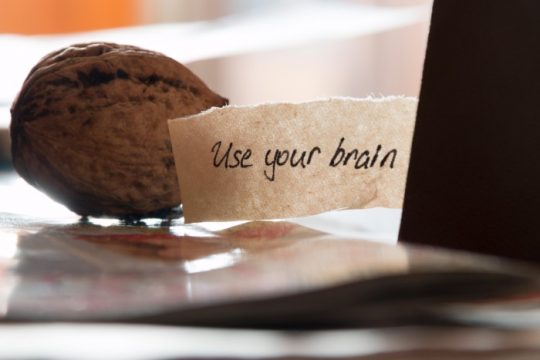
Did you know that by age 5, our brains had reached 90% of their adult size? And that between age 5 and age 10, our language and spatial understanding–the ability to comprehend the physical world around us–had grown dramatically? Certainly, if you’ve had the pleasure of raising children (although those memories may have faded a bit) or more recently have participated in the art and science of raising grandchildren, you can probably attest to this. How often have you said something like, “They grow up way too quickly!”
But did you also know that our brain’s ability to undertake complex reasoning, store long-term memory, and apply creativity tends to peak by age 30? And here’s an alarming thought: between age 40 and age 50, most people begin to develop the first signs of gradual decline in brain function, like short-term memory becoming less sharp or processing complex questions taking a bit longer. While that may in fact be alarming, it’s important to know that it usually isn’t until after age 70 that early signs of conditions like Alzheimer’s and dementia appear. This is the point at which genetic predisposition, lifestyle issues, and health issues play a big role in your well-being.
No matter your age, though, it’s important to not throw in the towel when you start to sense a slow-down, so to speak. In fact, there are things you can do to ward off much of the cognitive decline that happens naturally. In fact, there’s a lot you can to do maintain “brain health,” and the Administration for Community Living (ACL) sums it up well with this statement: “Thinking clearly about brain health means knowing how to keep you on top of your game. It also means being able to discern between scientific principles of brain health—and popular myths and legends.” ACL, a function of the U.S. Department of Health and Human Services, has assembled an informative website titled “What is Brain Health,” and it’s packed with information and great suggestions to maintain the strength of your brain…perhaps the most complex and arguably the most important organ in your body!
Access “What is Brain Health” here, and learn about how your brain develops, how you can keep it healthy, and how to access a range of fascinating facts, figures, and resources to help you understand this mysterious part of you body.

Subscribe
Sign Up for Our E-Newsletter!
Stay up-to-date on all of the topics you care about by subscribing to our quarterly newsletter emailed directly to your inbox!
SubscribeSubscribe
Sign Up for Our E-Newsletter!
Stay up-to-date on all of the topics you care about by subscribing to our quarterly newsletter emailed directly to your inbox!
Subscribe